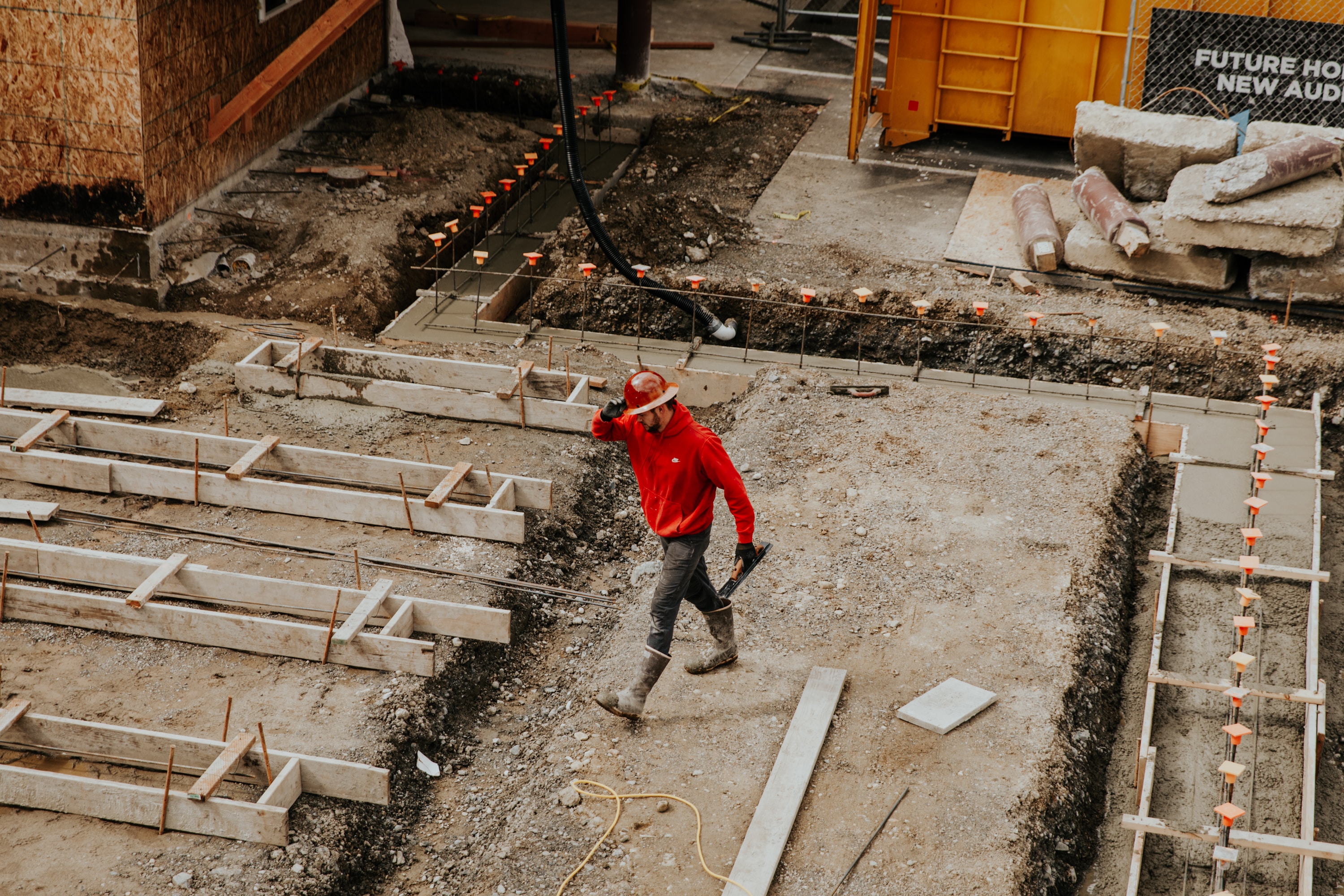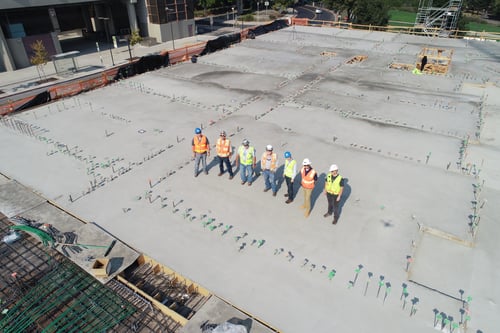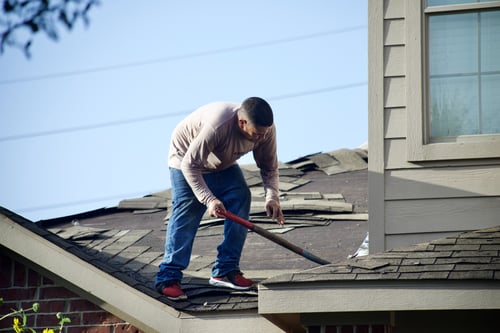How Will Florida's New Immigration Law Affect Local Roofing Companies?
May , 2023 | 7 min. read

Behind the scenes of the roofing industry amidst the shingles, tiles, and nails, there exists an elusive group that, for some companies, makes it all possible: undocumented immigrants. Working for low wages in often poor conditions, undocumented immigrants trying to attain the American Dream will do whatever it takes to make sure their families and themselves are taken care of, even if this means breaking the law. Have you ever asked yourself, though, why natural-born citizens of the US don’t want to work the same types of jobs illegal immigrants often do?
The answer is simple - these jobs aren’t pretty, they don’t pay well, and they’re physically taking. At RoofCrafters, we’re a judgment-free zone, and we’re not here to tell anyone what’s right and what’s wrong; we simply just enjoy repairing and replacing roofs, people! What we aren’t going to do is tell anyone or any company that what they’re doing is incorrect, or tell anyone how to live their American dream. What we will do, though, is give you the facts.
If you’re reading this article, you may have heard about the new immigration law Governor Ron Desantis has passed known as Senate Bill 1718. This bill will affect many different industries in the state of Florida, but mostly those that fall under the blue-collar category, such as roofing. That being said, in this article, we’re going to cover what exactly Senate Bill 1718 is, and how it will directly affect the roofing industry. Let’s jump right in!
What Is Senate Bill 1718?
Florida’s governor, Ron Desantis, signed Senate Bill 1718 on May 10th, 2023. This bill was created to combat the effects of illegal immigration caused by certain federal government border policies. So, what’s going to happen? In short, this bill will make E-Verify mandatory for all employers with 25 employees or more, and impose penalties for companies that employ illegal immigrants. This bill will also prohibit local governments from issuing ID cards to illegal immigrants. Senate Bill 1718 will take effect on July 1st, 2023.
How Will Senate Bill 1718 Affect the Roofing Industry?
Let’s talk about the elephant in the room, shall we? It’s no secret that a lot of blue-collar fields employ illegal immigrants in America. Why? Well, most people don’t want to do physically taxing work in unsafe conditions. On many occasions, especially in the roofing industry, companies will hire the people that they know are up for the challenge, which often includes illegal immigrants.
Many undocumented immigrants come from countries with limited economic opportunities and face difficult circumstances. They may be driven to seek better economic prospects for themselves and their families. Often, they are willing to take on physically demanding or low-paying jobs that others may not be interested in. This is a win-win for cheap companies - they get to avoid paying their fair share of taxes while paying their hard-working employees next to nothing.

Due to their immigration status, undocumented immigrants may face significant barriers to obtaining legal employment. They may lack the necessary documentation or work permits to access higher-skilled or better-paying jobs. As a result, they may be limited to jobs that require manual labor or have fewer legal requirements. The problem that senate bill 1718 is posing to illegal immigrants, as well as the roofing companies that allow them to fly under the radar, is E-Verify and labor shortages.
E-Verify
E-Verify is an Internet-based system in the United States that allows employers to verify the employment eligibility of their employees. It is administered by the Department of Homeland Security in partnership with the Social Security Administration. When using E-Verify, an employer submits the information from an employee's Form I-9 to the system, which then checks it against records held by the DHS and SSA. The system helps employers confirm that their employees are legally authorized to work in the United States.
E-Verify compares the information provided by the employee, such as their name, date of birth, and Social Security number, with the government databases. If the information matches, the employee is considered work-authorized. If there is a mismatch or other issue, the employer is provided with instructions on how to proceed, such as resolving the discrepancy or notifying the employee.

If an undocumented immigrant's information does not match the government records, it could potentially lead to complications. The employer using E-Verify is required to notify the employee of the tentative non-confirmation, which means there is a discrepancy between the information provided and the government records. The employee is then allowed to resolve the issue.
If an employee cannot resolve the discrepancy within a specific time frame or does not take any action, the employer may be required to terminate their employment. However, it is essential to note that the process and consequences can vary depending on the specific circumstances. Employers using E-Verify are expected to follow the procedures and guidelines set by the Department of Homeland Security and the Social Security Administration to ensure compliance with immigration and employment laws.
Labor Shortage
Some may argue that undocumented immigrants, including those working in the roofing industry, fill labor gaps that may exist due to factors such as low wages, physically demanding work, and challenging working conditions. They may be willing to take on jobs that native-born or legally authorized workers may not be interested in or find economically viable. Once Senate Bill 1718 kicks in, this may cause a significant shortage of labor within the roofing industry.
Undocumented immigrants also often contribute to the overall workforce by providing a source of labor that complements the skills and abilities of the existing workforce. They may bring valuable experience, work ethic, and specialized skills to industries like roofing. Without them, certain local companies may fall short. Some argue that the unavailability of undocumented workers can potentially lead to lower wages and poor working conditions in certain industries, including roofing, meaning that employers may exploit the vulnerability of documented workers, paying them lower wages or violating labor laws.

It's important to note that the impact of undocumented immigrants in the roofing industry can vary depending on factors such as geographical location, economic conditions, and industry-specific dynamics. I’m speaking solely to my fellow Floridian folk, here. There is an ongoing debate and differing viewpoints on the topic, and again, we’re not here to judge, but instead to provide the facts for you fine readers.
Should Floridian Roofing Companies Be Concerned About Senate Bill 1718?
If you’re a Florida-based roofing company that actively employs illegal immigrants for labor, the short answer is yes, you should be concerned. Once E-Verify becomes a requirement for all companies on July 1st of 2023, companies will be expected to comply with the new law, which often means terminating undocumented employees. If a company chooses not to comply, they may face some pretty hefty fines or even jail time. This could also mean that employees who are documented will not receive the proper wage or treatment they deserve, resulting in a violation of labor laws.
It is worth considering the potential economic consequences of firing a large number of undocumented workers. Certain industries, such as construction and roofing, heavily rely on undocumented labor. The sudden removal of a significant portion of the workforce could lead to labor shortages and have broader economic implications. Although, in the state of Florida, it’s not a choice for the employer to make any longer.
Whew, that was quite a bit of legal jargon thrown your way. RoofCrafters would like to take this opportunity to thank you for reaching the end of this article with an open mind, and accepting the facts as they are. We’d also like to stress one last time that we are not in a position to pass judgment on any company that employs illegal immigrants, or any person that resides in the US undocumented. At the end of the day, we’re all just humans trying to survive in the world. How you conduct your business or live your life is up to you and no one else. If you’re interested in learning more about RoofCrafters or Senate Bill 1718, be sure to drop schedule an inspection or drop us a line when you’re ready.
My name is Cassie, and I’m the Content Manager here at RoofCrafters. I was born and raised in Chicago, Illinois, and made my way out to Florida post-college graduation. I’m incredibly passionate about writing and creating valuable content that helps others with the collaboration of my marketing team. When I’m not working, I enjoy shopping (a little too much), spending time at the beach, and reading!



